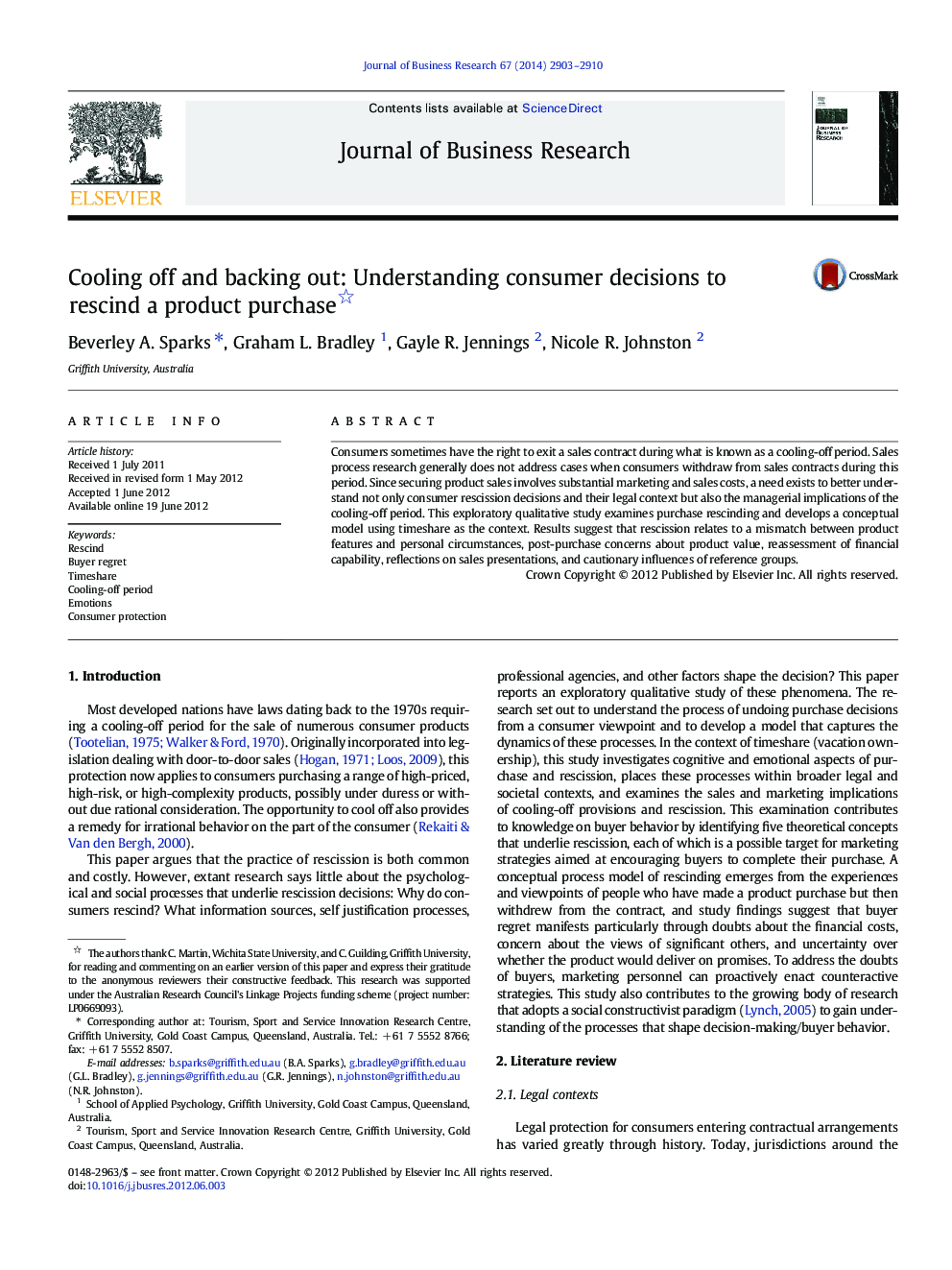| Article ID | Journal | Published Year | Pages | File Type |
|---|---|---|---|---|
| 1017607 | Journal of Business Research | 2014 | 8 Pages |
Consumers sometimes have the right to exit a sales contract during what is known as a cooling-off period. Sales process research generally does not address cases when consumers withdraw from sales contracts during this period. Since securing product sales involves substantial marketing and sales costs, a need exists to better understand not only consumer rescission decisions and their legal context but also the managerial implications of the cooling-off period. This exploratory qualitative study examines purchase rescinding and develops a conceptual model using timeshare as the context. Results suggest that rescission relates to a mismatch between product features and personal circumstances, post-purchase concerns about product value, reassessment of financial capability, reflections on sales presentations, and cautionary influences of reference groups.
